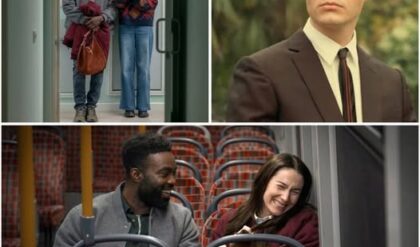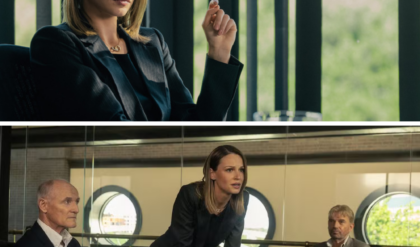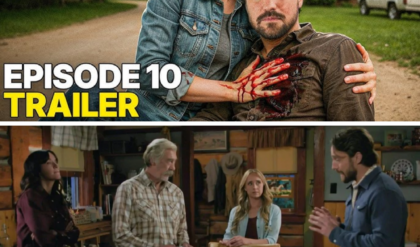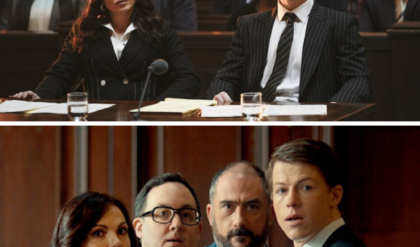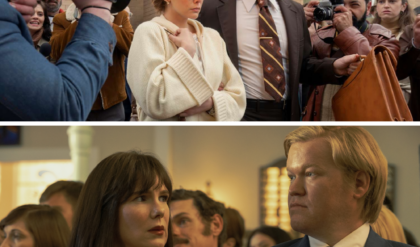In a rare and poignant revelation, Jodie Foster, the two-time Oscar-winning actress, has opened up about a trauma that reshaped her life and career. Speaking with Jodie Comer for Interview Magazine in June 2024, Foster, now 61, shared that she never wanted to perform in a play again after a harrowing experience tied to her college days at Yale University. Just days after her first and only college play in 1981, her stalker, John Hinckley Jr., attempted to assassinate President Ronald Reagan in a twisted bid to “impress” her. The incident, coupled with a chilling discovery about an armed audience member at her performance, left an indelible mark, steering her away from live theater forever. 😱
This article delves into Foster’s candid confession, explores the traumatic events of 1981, and reflects on how they shaped one of Hollywood’s most resilient stars. From a young actress navigating fame to a survivor reclaiming her narrative, Foster’s story is a testament to strength in the face of chaos. Let’s step back to that fateful spring and uncover the moment that changed everything. 🌟
A College Play Marred by Trauma 🎬
In 1980, Jodie Foster was an 18-year-old freshman at Yale, balancing her burgeoning Hollywood career with a desire for a “normal” college life. Known for her role as Iris, a teenage prostitute in Martin Scorsese’s 1976 film Taxi Driver, Foster was already a seasoned actress, having started as a child star in projects like Bugsy Malone and Freaky Friday. At Yale, she enrolled in a theater production of Getting Out, eager to explore live performance and connect with her peers. The play, staged over two weekends, was a chance to embrace a new creative challenge. 🎭
But the joy of that first weekend was shattered between performances. On March 30, 1981, John Hinckley Jr., a 25-year-old obsessed with Foster, shot President Ronald Reagan outside the Washington Hilton Hotel in Washington, D.C. Hinckley, who had seen Taxi Driver up to 15 times and fixated on Foster’s character, believed the assassination attempt would win her affection. “Over the past seven months I’ve left you dozens of poems, letters and love messages in the faint hope that you could develop an interest in me,” he wrote to Foster hours before the attack, later calling it “the greatest love offering in the history of the world.”
The shooting wounded Reagan, who survived after emergency surgery, along with White House Press Secretary James Brady (left permanently disabled), Secret Service agent Timothy McCarthy, and police officer Thomas Delahanty. The nation was stunned, and Foster, then just a teenager, found herself at the center of a media storm. “It was a huge moment. It was a long time ago. You probably don’t even know, but he shot him in order to impress me,” she told Comer, her voice carrying the weight of decades.
A Chilling Discovery at the Theater 😨
The trauma didn’t end with the assassination attempt. Foster revealed a terrifying detail about her play: an audience member, whom she noticed in the front row for both weekends, had brought a gun to her performance. “I decided to, the whole play, yell, ‘F— you, motherf—er!’ I just decided that I was going to use this guy,” she recalled, describing how she channeled her unease into her performance. The next day, it was revealed that the man had indeed carried a loaded firearm and was on the run.
The situation escalated when, during a college class with only 10 students, a bodyguard burst in and threw Foster to the ground for her safety—an embarrassing and jarring moment. “It was a traumatic moment, and I’ve never admitted that maybe that has something to do with how I never wanted to do a play again,” Foster confessed. The combination of Hinckley’s actions, the armed spectator, and the constant security presence—Secret Service agents, bodyguards, and a safe house—left her reeling. “The world fell apart,” she said, describing the chaos that engulfed her life.
Hinckley’s Obsession: A Twisted Tale of Delusion 💌
John Hinckley Jr.’s fixation on Foster began with Taxi Driver, where he identified with Robert De Niro’s troubled protagonist, Travis Bickle, and became obsessed with Foster’s character, Iris. After Foster enrolled at Yale in 1980, Hinckley followed her to New Haven, Connecticut, posing as a student and leaving letters, poems, and voicemails. He called her twice, but Foster, uninterested, rebuffed him. Desperate for her attention, he hatched a plan to commit a “historic deed,” first targeting President Jimmy Carter before shifting to Reagan after the 1980 election.
On March 30, 1981, Hinckley fired six shots in 1.7 seconds, striking Reagan and three others. His letter to Foster, written that morning, read, “Jodie, I’m asking you to please look into your heart and at least give me the chance with this historical deed to gain your respect and love.” Found not guilty by reason of insanity in 1982, Hinckley was confined to St. Elizabeths Hospital in Washington, D.C., until his conditional release in 2016 and unconditional release in June 2022. In a 2022 CBS interview, he expressed remorse, apologizing to Foster, the Reagan family, and Brady’s family, who suffered lifelong consequences from the shooting.
The Aftermath: A Life Under Siege 🛡️
For Foster, the assassination attempt was a “scarred, strange moment in history.” At 18, she was thrust into a media frenzy, hounded by reporters and paparazzi. She took a semester off from Yale, escorted by bodyguards everywhere, and faced additional stalkers, including Edward Michael Richardson, who carried a loaded gun but abandoned plans to harm her after seeing her perform. Foster was forced to testify at Hinckley’s trial, an experience she described as invasive and dehumanizing.
In a 1982 Esquire essay titled “Why Me?”, Foster wrote about the ordeal, grappling with the delusion of celebrity obsession. “John Hinkley’s greatest crime was the confusion of love and obsession. The trivialisation of love is something I will never forgive him,” she stated. She also reflected on the loss of her anonymity, noting that strangers had scrutinized her every move at Yale, from her clothing to her library seat, long before Hinckley’s actions. “The Hinckley ordeal did not destroy my anonymity; it only destroyed the illusion of it,” she wrote.
The trauma profoundly shaped Foster’s relationship with fame. “If you had been a public figure from the time that you were a toddler, if you’d had to fight for a life that felt real and honest and normal against all odds, then maybe you too might value privacy above all else,” she wrote in Esquire. Her resolve to protect her privacy became a defining trait, evident in her limited public comments about Hinckley—only four times in over four decades, including a 1981 press conference, the Esquire essay, a 1999 60 Minutes II interview, and a 2021 podcast with Marc Maron.
A Career Forged in Resilience 🎥
Despite the trauma, Foster refused to let Hinckley define her. “It is a testament to Foster that John Hinckley Jr. did not come to define her,” wrote Alexandra Pollard in The Independent. Her career flourished, with Oscar-winning roles in The Accused (1988) and The Silence of the Lambs (1991), and acclaimed performances in Panic Room (2002) and Nyad (2023). She also became a respected director, helming films like Money Monster (2016) and episodes of Black Mirror.
Yet, the theater remained a closed chapter. “I talked myself into loving theater and going to theater, but somehow feeling like I couldn’t make that commitment to ever do it again,” Foster told Comer. When Comer, a Tony winner for Prima Facie, asked if she could be persuaded to return to the stage, Foster quipped, “I’ll be the first 80-year-old person to go onstage with my walker, perhaps.” The humor masked a deeper truth: the trauma of 1981 had severed her from live performance.
A Legacy of Strength and Privacy 🌈
Foster’s 2024 confession is a rare glimpse into a wound she carried silently for over 40 years. By sharing her story, she not only honored her own resilience but also highlighted the lasting impact of obsession and violence. Her refusal to be defined by Hinckley’s actions is a powerful statement, as is her commitment to privacy in an industry that thrives on exposure. “Privacy. Some day, in the future, people will look back and remember how beautiful it once was,” she wrote in 1982, a sentiment that resonates today.
As Foster continues to shine—winning an Emmy for True Detective: Night Country in 2024 and a Golden Globe in 2025—she remains a beacon of strength. Her story reminds us that even in the face of trauma, one can forge a path of purpose and grace. The stage may have lost her, but the world gained a star who turned pain into art. Here’s to Jodie Foster, a survivor who chose to write her own script. 🌟💪

